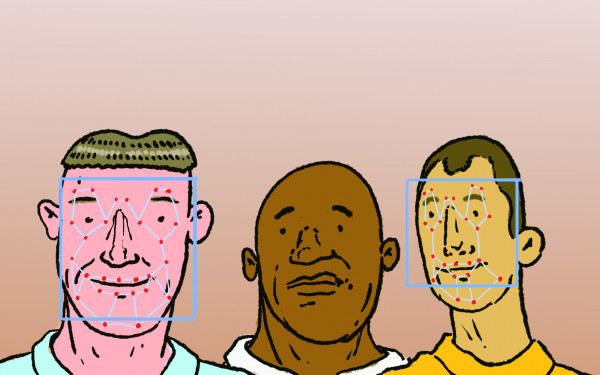Urban Planning? There’s an App for That
Concordia Professor Releases App to Track Commuter Data
A Concordia professor is working to see how smartphones can help improve urban planning and public transportation.
Zachary Patterson, who teaches in the Geography, Planning and Environment department and does research under the Hexagram-Concordia umbrella group, is launching his app DataMobile on Sept. 16 for a three-week research period to learn about the commuting habits of the Concordia community.
The app will be available for free download on the Google Play Store and Apple App Store, and those who participate will be entered in a draw to win an iPad.
“It’s a big question in transport planning right now: to what extent you can use people’s phones to get information to help plan public transport,” said Patterson, whose past research has included finding ways to give commuters access to ride-sharing programs.
“The biggest advantage [of collecting data with a smartphone] is that a very large portion of people have phones with GPS capabilities that they have with them all the time,” said Patterson.
“So that means that you have very rich data.”
Collecting data with smartphones is a first for Patterson, who said he hopes it can gather information about young people, who don’t normally use landline phones, which are typically used for public surveys.
Upon downloading the app, users are asked if they are part of the Concordia community. If they are, they are asked to list their primary and alternate modes of transportation, their approximate age, if they have a driver’s license or transit pass and if they live with anyone, among other questions.
Patterson has done analysis work for the Agence métropolitaine de transport, which plans and integrates public transport for the greater Montreal area, and will be presenting his work to the agency later this month. The questions posed are based on the AMT’s Origin-Destination Survey.
Since the app captures users’ actual movement through their phone’s GPS, Patterson says it can potentially give more accurate and reliable transit data, as the phones are able to record velocity and altitude as well.
“If we find we have a good random sample, we’ll be able to find what percentage of the population they represent in the total Concordia community,” explained Patterson.
Hence, the draw for the free iPad.
Tracking the Concordia community is a test case, continued Patterson, since the commute from home to the university can be used as “validation data” to extrapolate information about greater transport habits.
The user’s data is recorded anonymously, and the movement information is stored on a separate server than personal information recorded from the survey.
Patterson is working with two Concordia students on this project. Geography student Phil Viau tested the app and will be analyzing the forthcoming data, and Robson Razafindramary, who studies computer science, did the coding.
Patterson says he began this project to better understand the transit choices commuters make every day—whether most set out on the same route every day, or if making choices on the fly is more common.
“Knowing the prevailing mentality helps planners know how to implement new buses or routes more effectively,” he said.
You can find DataMobile on the Google Play Store and Apple App Store for free download after Sept. 16.

_900_600_90.jpg)
_600_832_s.png)

_600_375_90_s_c1.jpg)

_600_375_90_s_c1.jpg)
-01_600_375_s_c1.png)